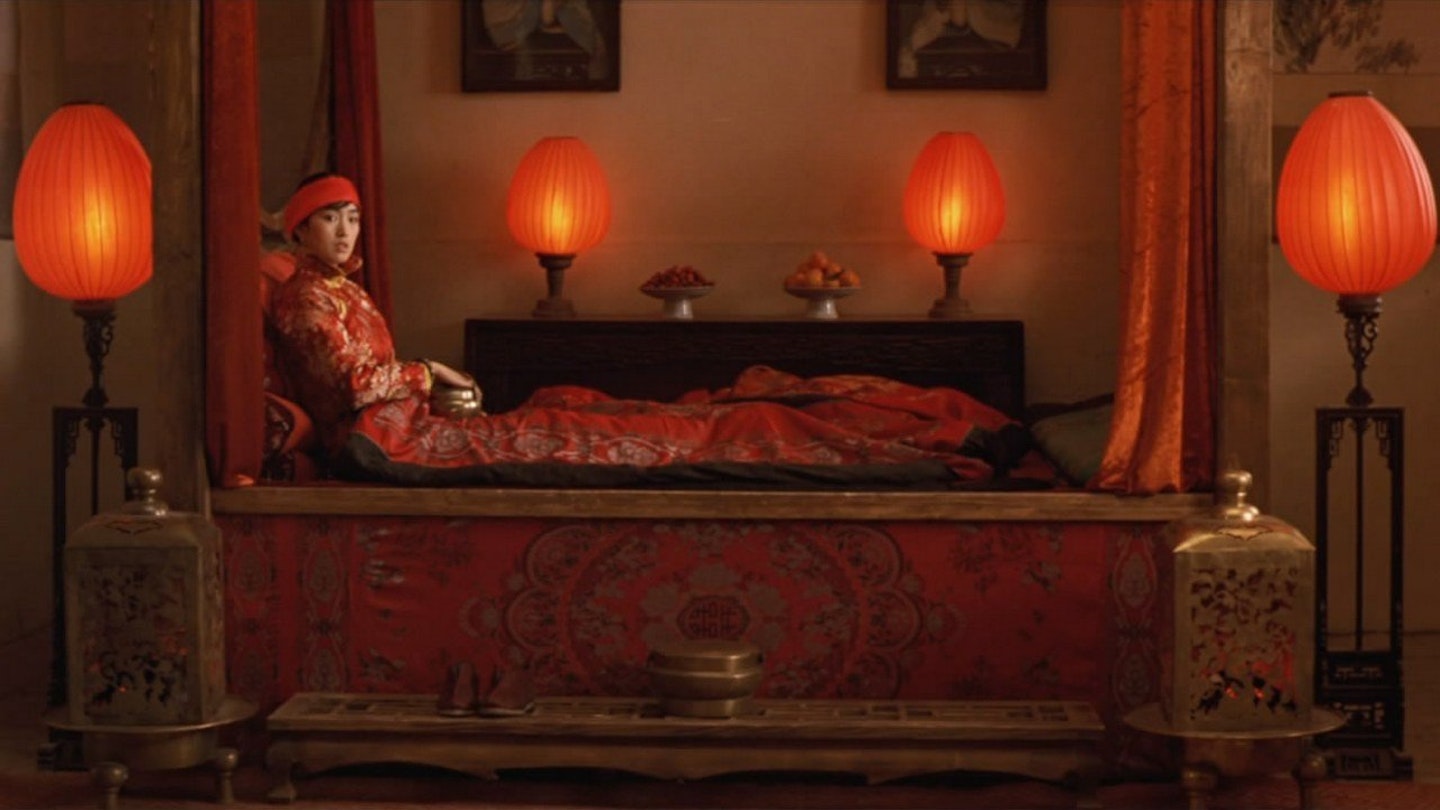Adapted from Su Tong's 1989 novel, Wives and Concubines, this was the final part of Zhang Yimou's Confucian trilogy that opened with Red Sorghum and Ju Dou. Although the screenplay was passed by the censors and the finished film was allowed to garner acclaim and awards abroad, it was banned by Beijing for its subversive political content.
By setting the action in a sanheyuan (a traditional courtyard house that epitomised the Confucian ideal of self-sufficient harmony that the Communists had adopted), Zhang was implying that there was something rotten in the Chinese system and by having Songlian stress her academic credentials, he alluded to the students who had been the driving force behind the Pro-Democracy Movement. Similarly, by having Meishan's executioners deny her death, he was attacking the Party's defensive attitude to the Tiananmen Square Massacre.
Moreover, by filming mostly in long shot in lingering deep-focus takes, Zhang sought to suggest the isolation of the Chinese authorities and their entrenched positions regarding reform, while the consistent use of delimiting framing devices reinforced the overall sense of repression. However, this was also very much a film about both the historical and contemporary status of Chinese women. For all the delicate artistry of the décor and visuals, this is an uncompromising study of the part that women play in their own subjugation within a society that denigrates them from birth.
A former opera singer who still demands to be the centre of attention, Meishan deeply resented the arrival of a younger rival, just as Zhuoyun continued to harbour a grudge against her. However, rather than emulating the dignified withdrawal of First Wife, the trio resort to deception, disloyalty and perfidy to advance their cause, as Songlian pretends to be pregant, Meishan seeks solace in the local doctor and Zhuoyun exposes the affair that leads to her adversary's murder in a room beneath the rooftops on which she used to sing.
The entire ensemble, along with cinematographer Zhao Fei, excels throughout. But it's Zhang's aesthetic subtlety and Gong Li's spirited defiance that make this so compelling, moving and courageous.
